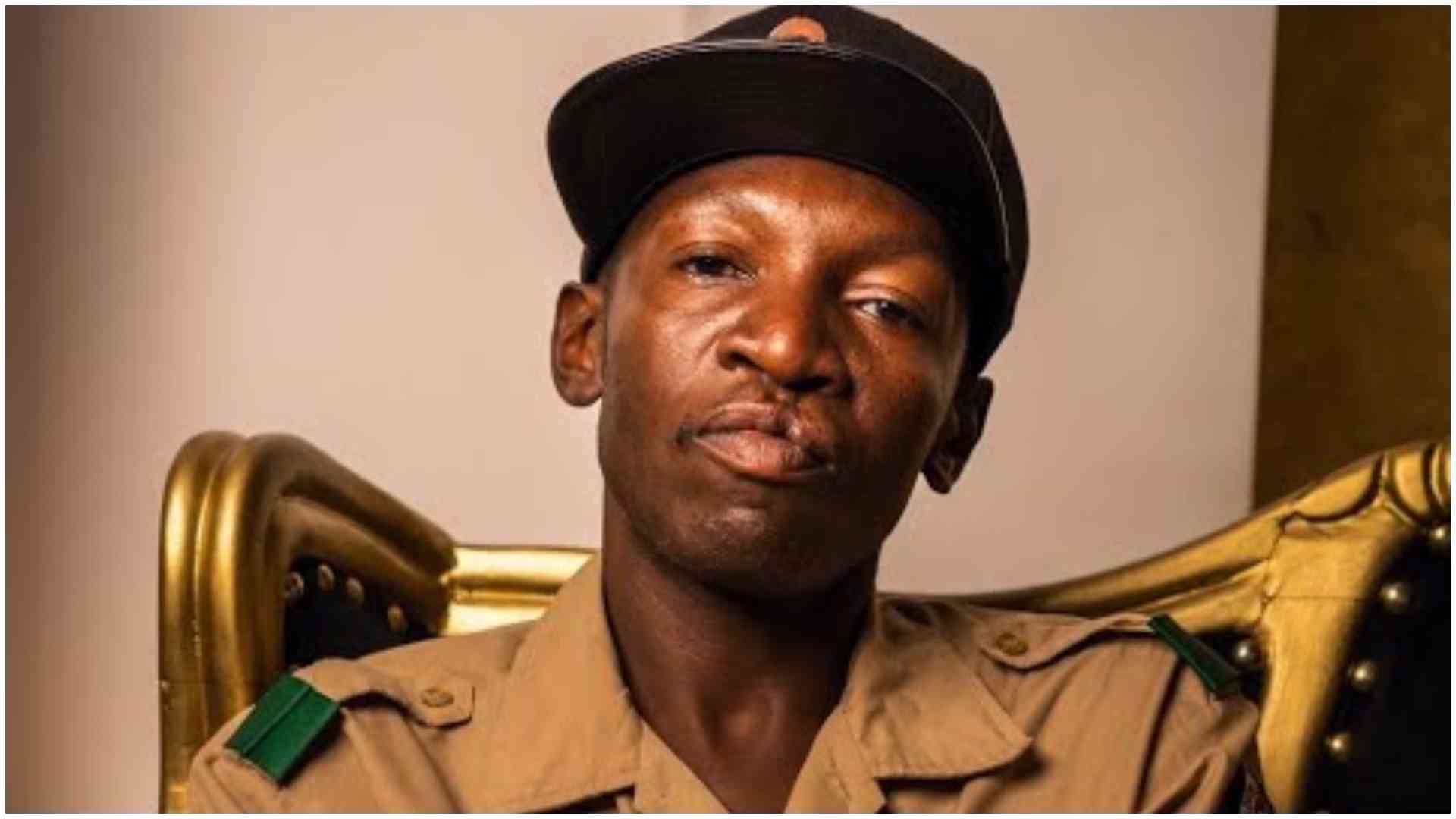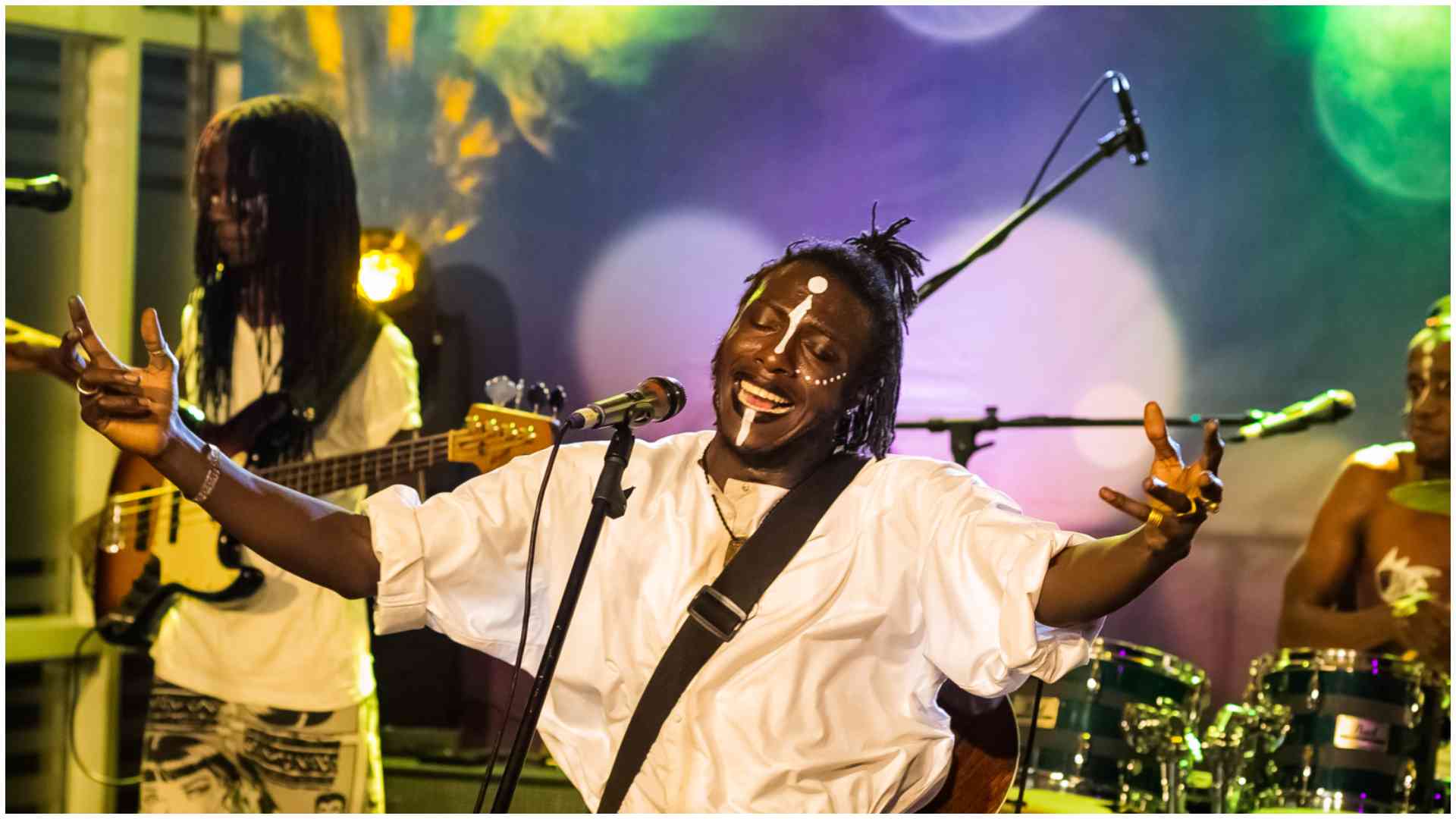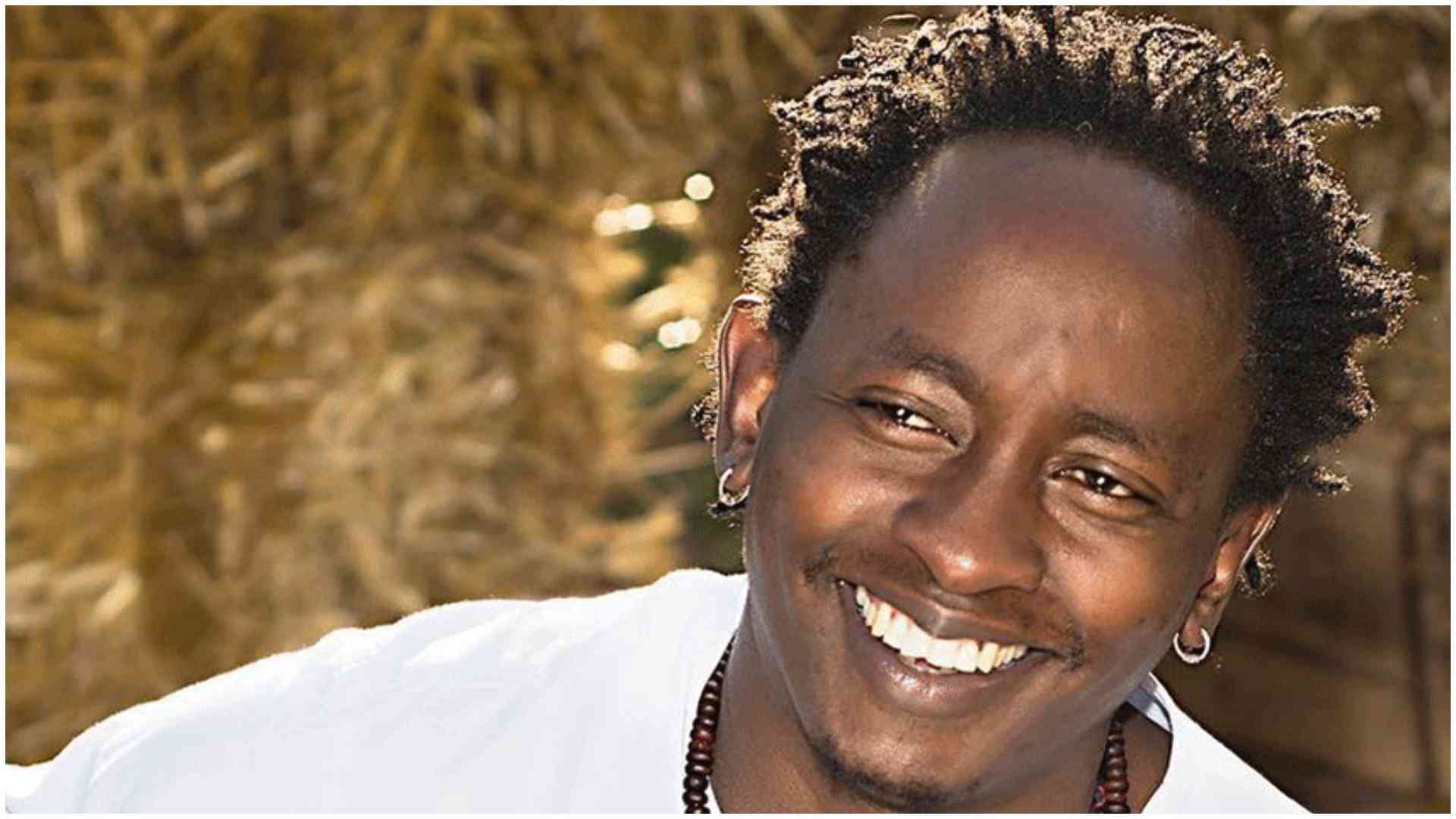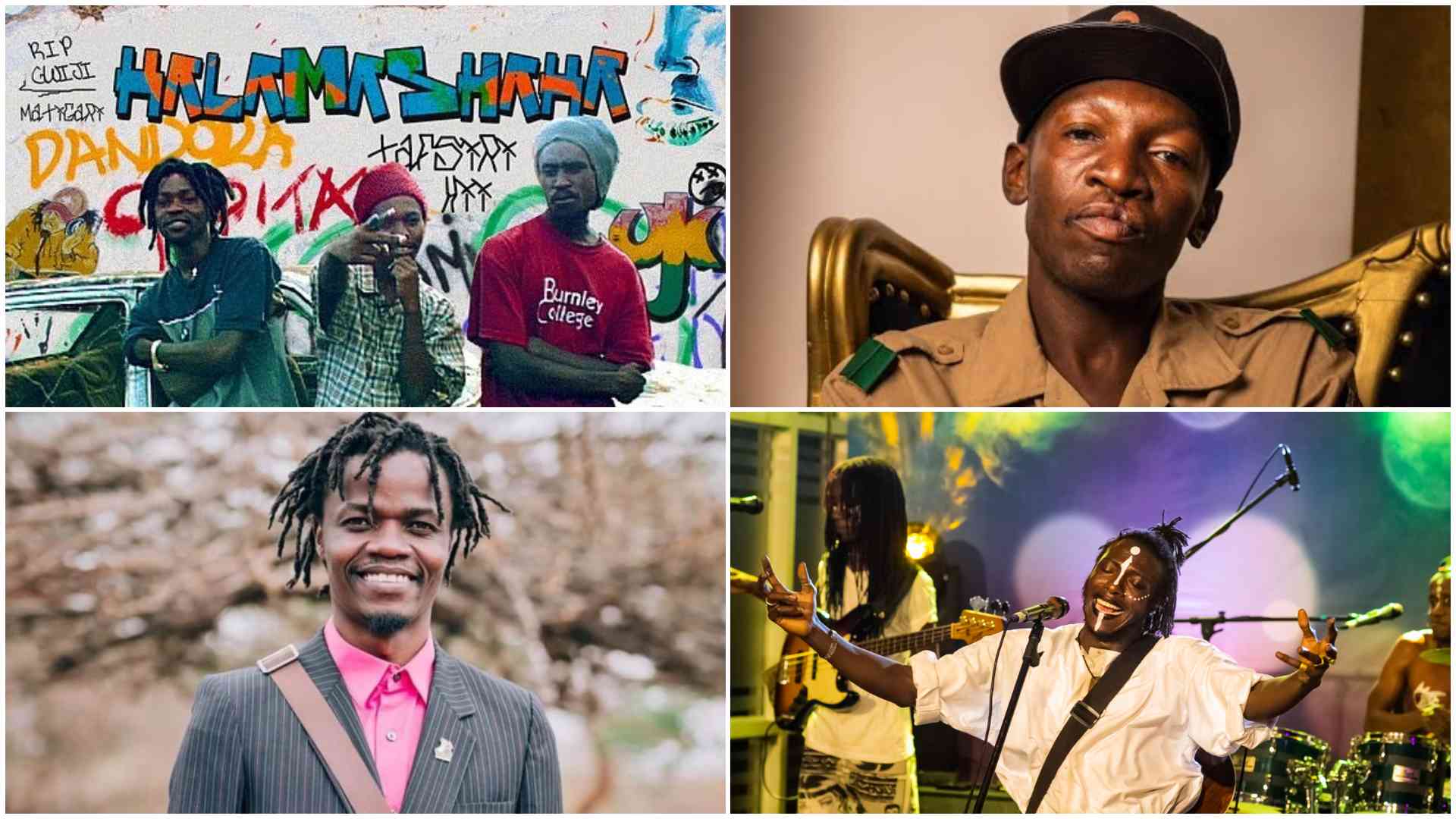For every song that unites us, like Rufftone’s Mungu Baba, there is a song that calls out the immorality of our society, like Winyo, Kamaa and Kitu Sewer’s Angalia Saa.
Kenya has a long history of protest songs, from vernacular hits in the 80s and 90s that were layered in innuendos, to contemporary jams that said, ‘hey, get you act together.’
For every prayer like “Mungu Baba twaomba, uilinde nchi yetu tuishi kwa umoja, Chuki isi tumalize, tusameheane tupendane, Ni wewe Mungu pekee,” there is a hard-hitting song that creates a distinction between true patriots and betrayers, with, “Na-dedicate-ia hii, Ma-hero wote wa Kenya, Kila mtu ame-struggle na hako paid for, Hii ni time ya kuwa paid for, Revolution na ma-comrade.”
Rap music has always been the perfect genre to critique authorities, the song’s structure ability to pack more bars and rhymes and lines lending itself to a longer critique structure.
And Kenya’s rap has been at the forefront of whatever liberation Kenya will experience or need to.
In 1997, the aptly named Kalamashaka were already fingering the police as the antithesis of ‘utumishi kwa wote’, rapping, “Kwenye kona, nakumbuka saa mbili, Nikiona yule mzee akishikwa koo, balaa, Nashindwa, nikimbilie nani? Jambazi? Hapana. Polisi? Hapana, Watanitia pingu hata bila sababu.”
In August 2025, the police ranked first as the most corrupt and unethical institution in a survey by The Ethics and Anti-Corruption Commission (EACC).
That’s the beauty of art, being able to depict what happens in the society in a vivid way, what bongo rapper Afande Sele described in Darubini Kali, saying, “Mimi ni msanii, Kioo cha jamii, Mimi naona mbali, Kwa darubini kali.”

Add the raw, grit and mostly black and white depiction of conscious rap, and the genre, which was birthed roughly five decades ago, retains the most potency in creating a true depiction of the society’s evil.
Think This Is America by American rapper Childish Gambino.
More than a rap song, it’s a moving critique released at the height of Black Lives Matter, a “decentralized political and social movement that aims to highlight racism, discrimination and racial inequality experienced by black people, and to promote anti-racism.”
Dramatic, dark and yet a true depiction of the modern America from the eyes of an African American, the music video was critically acclaimed, going on to win tons of awards, including Best Music Video at the 61st Grammy Awards, and Best Cinematography at the International Film festival of the Art of Cinematography Camerimage.
By the time George Perry Floyd Jr was suffocated to death by Derek Chauvin, a white police officer, in Minneapolis, Minnesota in May 2020, This Is America has already predicted the occurrence.
Angalia Saa remains one of the finest hours from Kenyan posts, a song that encapsulates hopelessness, yet offers hope, poetry that remembers the true independence heroes, yet cements the modern Kenyan’s space in charting a better path for the country as a true hero.
The celebrated Winyo, whose hook has stood ageless almost two decades later, melodiously sings, ‘Najua unachotaka, Najua unapoenda, Najua wataka haki yako, Angalia saa, Angalia saa, Wewe ni shujaa.’
According to Timothy Welbeck, the director of the Center for Anti-Racism at Temple University in Philadelphia, rap music’s accessibility is what makes the genre so popular and so impactful.
Speaking for an Associated Press (AP) article during Hip Hop’s 50th year in 2023, “It makes sense that social movements would gravitate towards hip-hop, as a culture and rap music as a medium of expression,” he said.
He said the genre is one of the most authentic in reference to life experiences, saying, “..It also makes sense that rappers would position themselves in these movements, in part, because rappers are coming out of the communities that are experiencing the need to protest.”
With artistic brand names like ‘Mau Mau’ and ‘The Common Mwananchi’, rap is deep in the ongoing war for a better society.
In Mazishi Ya Polisi, by Zakah and Kamaa and produced by Chzn Brain, off the album Dandora Burning, the lyrics capture the state of the nation in the mid-2000s, as seen from the eyes of young, hopeful but marginalized Kenyans from Dandora.
‘Tangu era za kamjesh mpaka era za Chavez, Mwiraria anasema hakuna dooh, Yote ilimalizwa na Moi na Kamlesh,’ Kalamashaka’s Kamaa raps, four bars that packs the notoriety of the criminal gang Kamjesh, to the Goldenberg scandal that tarnished the last years of the Moi presidency.
Though far removed from governance, Kamaa resonates with criminal gangs from where he lives, while his intellect allows him to discern and comment on a scandal that meant less resources for young people like him.
That true heroism, using talent and voice to speak openly about any subject matter.
True heroes are relentless in reminding us of the grand corruption in the ecosystem of a Kenyan, critiques that cut across the voter, the elected, the immoral man with kids outside his marriage.

Take for instance Sheria, by Sarabi and Juliani.
While Sarabi’s Mandela sings; “Nalipa tax na hata siwezi afford kupanda taxi, Kwa banki sina kakitu siwezi afford hata shati,” Juliani cements the message with, “Complain ufisadi kwani ulidhani Tshirt, fifty bob, leso siku ya campaign ilikuwa free?”, adding, “Usiniambie kenya kuna umaskini, Kwani hizi fat fingers zinaibia nani?’
Juliani has been consistent in the fight for social justice that he is arguably the face of it. The award-winning rapper, activist, CBO leader and poet is a true shujaa, with art that has transcended from rap as a genre, by creating catchy hooks that even kids can sing to.
“Niko njaa hata siezi karanga, hohe hahe shaghala bhaghala, niko tayari, (kulipa) kulipa gharama, sitasimama maovu yakitawala,” he sings on Utawala, before going on to rap about the hopelessness of an electorate that is faced with providing for themselves and those they raise, while facing the hardships of an unfair system engineered by nothing else but bad governance.
He has walked the talk, a visible part of civil right demonstrations including the anti-finance bill demos of 2024.
In July this year, in his usual style, he reminded everyone that ill justices don’t discriminate, writing; “In times of resistance and fighting for justice, do not be the characters that think they are special, and it will not happen to you.”
He added; “When evil ina-self-destruct, inapita na kila mtu, worse when uko kwa proximity,” he said, blending English and Kiswahili to drive home the point.”
As the country celebrated Mashujaa earlier this week, it’s worth noting that the list of true heroes, men and women who have been vocal in calling for a just society, goes uncelebrated.
And the State has never been shy about giving its most vocal critics – rappers – a wide berth when it comes to state commendation and recognition.
As the recipient list bulges and grows with celebrities like Jackie Maribe, Sarah Hassan, Brenda Wairimu and Prince Indah, rappers like Kalamashaka and Juliani stay in the cold.
Even the celebrated Eric Wainiana, whose phenomenal song Nchi ya Kitu Kidogo stirred the consciousness of the country at a time when voices were being silenced, has never gotten a State commendation.

As rap grows and mutates into many sub-genres, it retains the same weight when it comes to speaking truth to those in power.
Reflecting on his song June 25th, released a year after the violence, death and lack of accountability that happened in mid-2024, Octopizzo captured the gravity of art trying to capture the mood of the day in a poetic and cinematic canvas, while also being a page of history for those to come after to look back in judging their own era.
“This moment embodies a complex duality, marked by both sorrow and reverence and will remain indelibly inscribed in our shared historical consciousness. It’s a scripture when I write, so when my kids press play, they inherit my fight,” he wrote.


